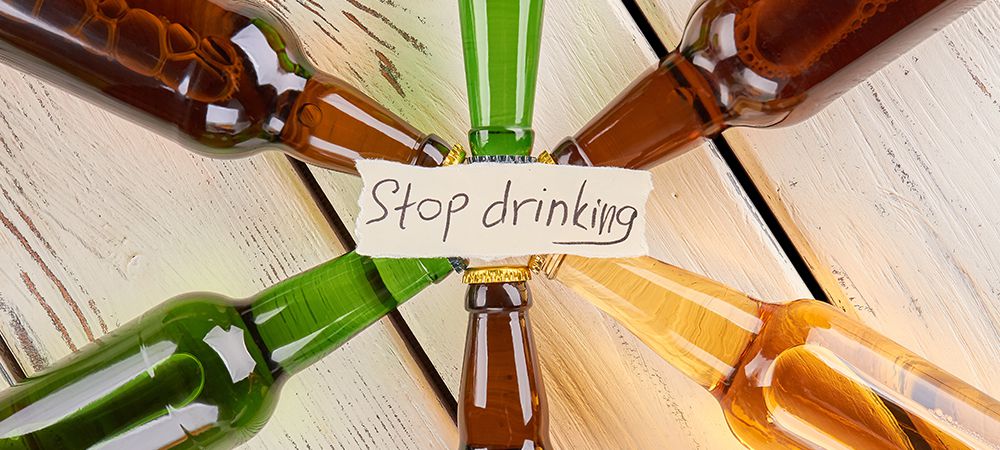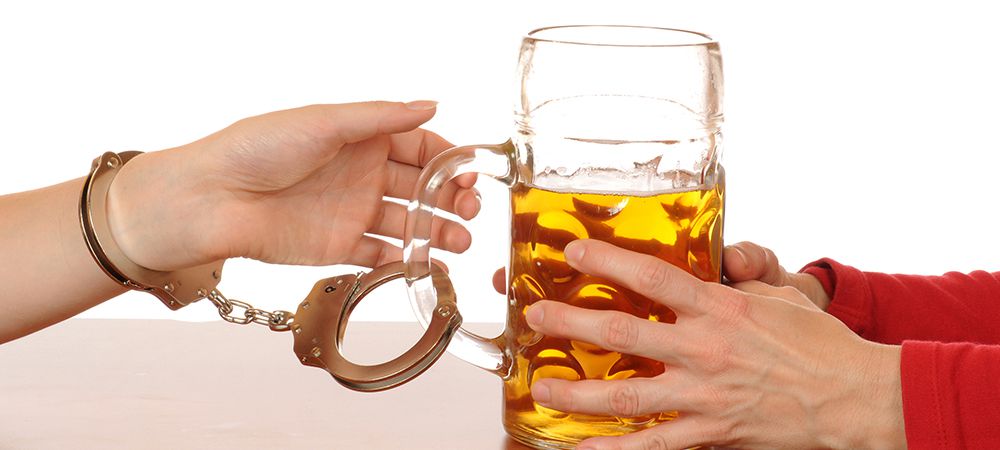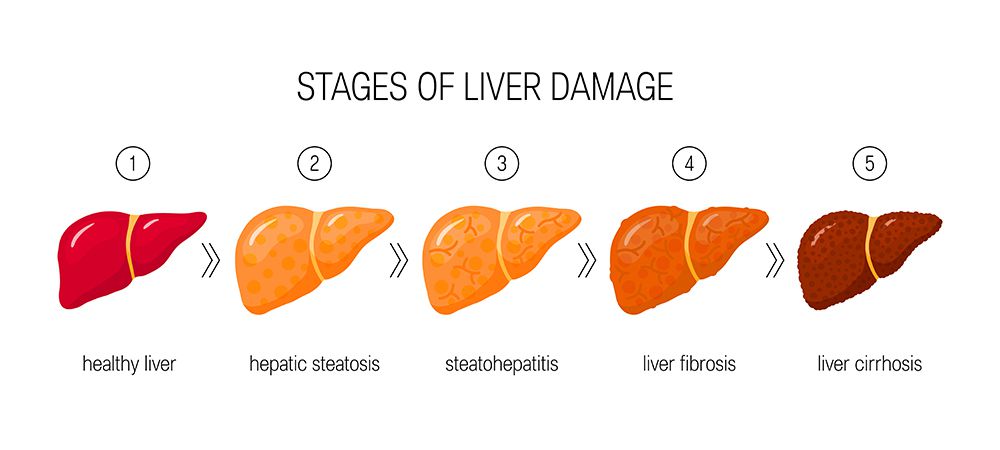Regular overuse of alcohol over a sustained period of time can result in significant health problems, including heart complications, neurological deficits, and various cancers. But of all the organs in the body that can be impacted by excessive consumption of alcohol, the liver probably bears the biggest brunt.
The liver is one of the body’s natural filters. It is a means by which we get rid of waste products and toxins. With its regenerative capabilities, the liver is remarkably durable. But even the toughest components will eventually wear down and ultimately break if they are not used properly.
Fortunately, the human body is intuitive, and the liver gives plenty of warning when it starts to function less optimally than it should. In this article, we will talk about how the liver works, what those early warning signs are, and most importantly, what you can do about it.
What Does The Liver Do?
The liver has many essential functions, one of which is to process all blood that leaves the stomach and intestines. It breaks down both useful and harmful substances within the blood. Useful substances like nutrients and medications are returned to the bloodstream and distributed to other parts of the body. Harmful substances are excreted into bile, which goes into the intestine and leaves the body as feces, or blood, which goes into the kidneys and leaves the body as urine.
The liver has been found to be responsible for at least 500 vital functions, including the following:
- It regulates amino acids, which form the building blocks of proteins
- It stores excess glucose in the form of glycogen, which it converts back to glucose as needed
- It produces some proteins that are needed for blood plasma
- It removes harmful bacteria from the bloodstream and produces immune factors
- It regulates blood clotting
- It convert poisonous ammonia to urea, which is passed out of the body in urine
- It produces cholesterol and proteins to help move fat through the body
- It stores iron and processes hemoglobin for its use
How Does Alcohol Affect The Liver?
When you consume alcohol, it is absorbed into the bloodstream via the wall of the stomach. From there, it is distributed to all parts of the body, including the liver. The liver processes alcohol in much the same way as it processes everything else, but it can only metabolize about one standard drink per hour. Anything over and above that circulates throughout the body, potentially affecting the other organs.
A single episode of binge drinking can interrupt normal functioning of the liver, and this in turn can result in your body chemistry being unbalanced. This is why people tend to feel a little rough for a day or two after a heavy drinking session. If you are not misusing alcohol on a regular basis, the liver is able to resume normal functioning.
Problems can arise if your liver is being called upon to metabolize alcohol on a continuous basis. It can lead to liver damage, resulting in the following:
- Fatty liver disease: excess deposits of fat
- Alcoholic hepatitis: inflammation of the liver
- Cirrhosis: Scarring of the liver that is not reversible
What Are The Early Warning Signs Of Liver Malfunction?

The early signs of liver disease can be easy to miss, because they can be mistakenly attributed to other causes. In general, you should consult your doctor if you experience any unexplained symptoms that persist.
If you are experiencing any of the following symptoms, your body may be giving you some early signs that all is not well with your liver.
- You appear jaundiced (yellow-tinged skin and eyes)
- Your urine is dark yellow
- Your stool is unusually pale
- You experience abdominal pain and swelling
- You experience nausea and vomiting
- Your skin is unbearably itchy
- Your legs and ankles are swollen
- You bruise more easily than usual
- You are extremely tired in spite of getting sufficient sleep
- You have noticed a decrease in your appetite
What Happens If The Signs Are Ignored?
Like many medical conditions, early intervention can be key to reversing early liver damage. The longer you leave it, the more extensive the damage will be, and the longer it will take you to heal. If left unchecked for long enough, you may find yourself dealing with serious long-term conditions that, in some cases, are not reversible.
Alcoholic Hepatitis
Regular overuse of alcohol over a prolonged period of time can result in inflammation of the liver. Common symptoms include jaundice, fever, loss of appetite, nausea and vomiting, chronic fatigue, and abdominal pain. Advanced alcoholic hepatitis can result in fluid buildup in the abdomen, failure of the liver and kidneys, and confusion resulting from a buildup of toxins that would usually be broken down and eliminated by the liver.
Cirrhosis
Damage done to any part of the body can leave scar tissue, and the liver is no exception. The more you have liver damage resulting from alcohol or any other cause, the more scar tissue will form, and the harder it will be for the liver to do its job. Cirrhosis is not reversible, but you can prevent further damage by eliminating your use of alcohol and making some other lifestyle changes that are described below.
With cirrhosis, you may experience the symptoms of hepatitis, plus the following:
- You bruise easily
- Your legs, feet and ankles become swollen
- You lose a significant amount of weight without attempting to do so
- Spider-like blood vessels appear on your skin
- You experience period irregularities not related to pregnancy or menopause
- The palms of your hands become abnormally red
- You experience a loss of libido, breast enlargement, or testicular atrophy
What Steps Can Be Taken To Prevent Further Damage?
This may seem like a doom-and-gloom scenario, but you do have the power to stop liver disease in its tracks. Fatty liver disease can be reversed if you make some changes to your lifestyle.
Stop Using Alcohol

The sooner you stop consuming alcohol, the sooner your liver will be released from the job of trying to metabolize it. You may be able to start reversing the harm of fatty liver disease in as little as two weeks. It is important to bear the following in mind when you are planning to quit drinking:
- Withdrawal without medical supervision can be extremely dangerous. It is recommended that you check into a detox facility, where medical staff can keep you safe and manage withdrawal symptoms as they arise.
- Your cessation of alcohol use should be permanent. Even if you manage to completely reverse your liver disease, those conditions will return as soon as you start drinking again.
Improve Your Eating Habits
Alcohol is not the only thing that can cause liver damage. Foods and beverages that have added sugars and trans fats can also do harm. Conversely, your liver will benefit from a diet of whole grains, unprocessed fruits and vegetables, and lean proteins.
Other Lifestyle Changes
Some other things that can help your liver include the following:
- Drinking plenty of water helps with liver functioning
- Studies are showing that smoking cigarettes can aggravate the symptoms of fatty liver disease
- Any prescribed medication you take is processed by the liver: inform any doctor who is prescribing medication of a fatty liver disease diagnosis
Getting Help For Substance Abuse Disorder
You only have one body, and you deserve for it to be in good working order so you can live a long, fruitful life. If alcohol consumption is destroying your health, you have the power to change that, and we can help. Thousand Islands Rehab Centre is a full-service addiction treatment facility that will take care of you from detox right though to aftercare. We will design a treatment program that is tailored to your needs and circumstances. With our compassionate staff and our welcoming facility, you will soon be on the road to recovery.









